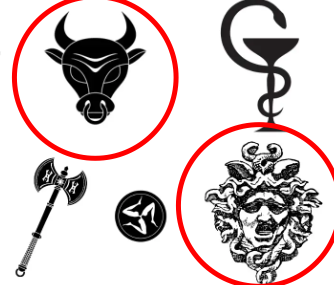Ancient Greek Civilisations: Nine Aspects (copy)
1/10
Earn XP
Name | Mastery | Learn | Test | Matching | Spaced | Call with Kai |
|---|
No analytics yet
Send a link to your students to track their progress
11 Terms
Origins
Greek Religion in Greece became established in 750 bc. In the 2nd millennium, people began to worship Zeus.
Mythologies (Gods)
Zeus: The ruler of Olympus, God of Lightning.
Poseidon: God of the oceans and seas.
Hades: God of the Underworld.
Beliefs
Concerned with traditional tales told in Greece. Note, there is a difference between Greek mythology and religion though the two are closely interconnected. No real doctrine.
Sacred Stories
Stories to do with the Gods.
The Homeric Hymns.
Delphic inscriptions and oracles.
Sibylline prophecies.
Texts
There aren’t any, in terms of a Christian or Islam mindset of a Bible or Quran. Many words of the Gods such as Aristotle or Homer’s Odyssey can be read for a greater understanding.
Rituals
Many animal sacrifices were given to the Gods in temples, with different animals sacred to specific Gods. Praying to deities is also a common practice, with processions at festivals.
Places, Spaces, Times, Artefacts
Places: Temple of Hephaestus, The Acropolis in Athens, Mount Olympus.
Spaces: Shrines, some can be in homes.
Times: Panathenaea, an ancient Greek festival to offer sacrifices to the Gods. Olympic Games: the ancient festival Zeus held every fourth summer.
Artefacts: Statues of the Gods, art or stonework.
Spiritual Experiences
Any festivals, rituals, substances or actions used to get closer to their deities.
Ethics
-Aretē: an excellence of strength or ability, living up to one’s full potential.
-Timē: objective of a successful, attaining honour.
-Hybris: trying to go beyond one’s possibilities.
Symbols
The Gorgon (Medusa): Turned people to stone with a look, power so strong.
The Minotaur: fear of the unknown, human nature.

Social Structures
Athenian Society separated into four categories: Upper class, metics (middle), freedmen (lower), and the slave men.